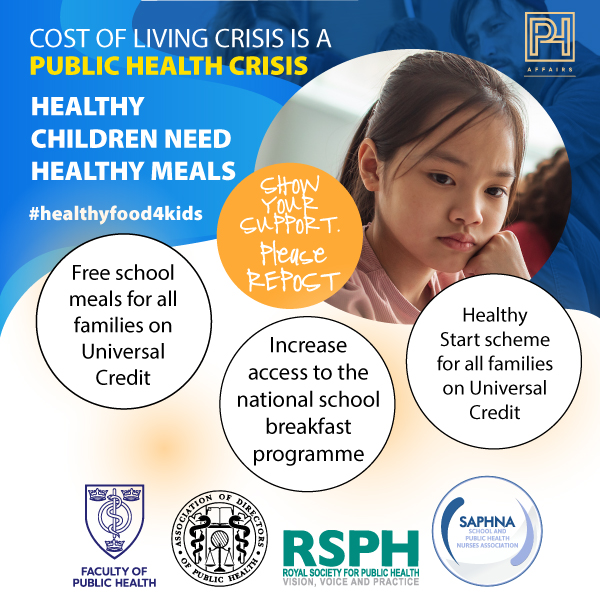
Matt White, chair of the Public Sector Catering Alliance, signed and endorsed the letter on behalf of the public sector catering associations.
The letter, headed by the Faculty of Public Health, the Association of Directors of Public Health, the Royal Society for Public Health, and the School and Public Health Nurses Association, has received widespread support from Parliamentarians and third-sector organisations.
In September of 2022, over a quarter of households with children experienced food insecurity, and the current cost of living crisis will have increased this number.
Over 30 MPs and 20 members of the House of Lords have signed the letter, which calls on the Prime Minister to support the health and development of children by:
- Expand access to Free School Meals for all children in households receiving Universal Credit, removing the £7,400 income cap.
- Increase funding to the National School Breakfast Programme to expand delivery initially from 2,500 schools to 5,000, with a long-term plan to provide coverage to a higher percentage of disadvantaged pupils.
- Promote access to the Healthy Start scheme, and expand access to all families with young children who receive Universal Credit.
Professor Kevin Fenton CBE, president of the Faculty of Public Health said: “As the cost of living crisis bites, many families across the UK are currently struggling with the reality of food poverty, unable to meet even their most basic needs.
“Initiatives such as Free School Meals, the National School Breakfast Programme and the Healthy Start scheme are a vital lifeline, but with too many children and families unable to access these services. [The] Government is missing an opportunity to firmly address the reality and impacts of child food poverty, which impairs the lives and life chances of disadvantaged children and young people across the UK.
“To protect and improve the health of disadvantaged communities across the UK, and support a healthy, productive population, we call upon Government to fully implement our recommendations to expand access to these vital services for those who need them most.”








